CHAMPIONS GATE, Fla. - Arming Army Reserve Soldiers with tools to rekindle family relationships rather than fight in combat was the mission here June 12-14.
More than 200 Soldiers and their Families gathered at a mega golf resort just outside Orlando, Fla., for a three-day Yellow Ribbon Reintegration Program workshop.
From family advocates to finance specialists, combat veterans and their spouses received hours of interactive, positive information to take back, digest and discuss with their families and other veterans.
Event organizers from the 81st Regional Support Command, based at Fort Jackson, S.C., ensured workshop participants got the biggest bang for their time.
Integrating mandatory seminars with numerous scheduled "booth" times was a key ingredient for a successful weekend, said Mark Daniels, the 81st RSC Yellow Ribbon Reintegration Program manager.
"It is very important these Soldiers and families get the information they need to ensure a positive transition after a deployment," he said. "This weekend was all about them, and what can we do to make their lives easier after they return home."
More than a dozen organizations, to include Veterans Affairs, Employer Partnership Initiative and Army OneSource were available to answer individual questions or concerns from anyone willing to ask.
Getting a first-hand observation of the weekend event was Maj. Gen. Adolph McQueen, commanding general of the 200th Military Police Command, based at Fort Meade, Md., who had dozens of Soldiers attending the event.
McQueen said he wants to ensure his and other Soldiers understand the importance of the Yellow Ribbon events and the resources available and entitled to them as combat veterans.
"I want our Soldiers to use these services which will round them out as Soldiers, round their Families out who were left behind and bring them back together as a whole," he said.
Employment Partnership Initiative
One popular program at the event was the Army Reserve Employment Partnership Initiative.
Rachel Foster, the EPI program support manager for Florida, was busy both days talking with Soldiers and spouses about employment opportunities here, back in their communities and across the country.
After spending more than 26 years on active duty, Foster said she knows what these Soldiers and Families are going through.
"What I do is help Army Reserve Soldiers and their Family members find jobs," she said. "I go to job fairs and find employers who would like to partner with the Army Reserve and try to partner them with Army Reserve Soldiers."
Although the event was only Foster's second time participating in a Yellow Ribbon workshop, she said there are good news success stories out there about people who attend the reintegration workshops.
"When a Soldier serves his or her country and has been in harm's way and comes home to their family, and there isn't a job left, that not only affects the Soldier and the Family, but the Army and the nation as a whole," Foster said.
When Soldiers have a job, she said they don't worry about their bills being paid, but said there are circumstances where Soldiers return home and have lost their means of supporting their families - a number one priority for Foster and other program support managers.
"What I do is help those Soldiers, and I don't have to work at it," she said. "It's what I love to do -- taking care of Soldiers."
Army OneSource
Another busy place to visit during the weekend was the Army OneSource information table.
Spalvera Mercer, the community support coordinator for Army OneSource and South Carolina resident, was fully occupied passing out pens, mouse pads and pamphlets about the subsidiary of Military OneSource.
"Army OneSource is actually a concept to provide information and referrals and to connect services for diverse Family members and Soldiers out in the community," Mercer said.
The target audiences are those Soldiers who are not geographically located near a military installation. "We are trying to ensure a connectivity of services to make sure these Soldiers and Family members receive the same services as if they were near a military installation," she said.
Mercer said Army OneSource, and other organizations which participated during the Orlando, Fla., workshop, are total advocates for both the Soldier and Yellow Ribbon.
"It's where all the Soldiers come to get the information and briefings after their deployments," she said.
The biggest concern, Mercer said, is the lack of knowledge and education about the resources available to combat veterans.
"We are out here to support them," she said. "We appreciate what they do for our country and what their Family members have done for our country. We want them to feel like they are a part of our family."
Mercer said the Yellow Ribbon program is based on hope. "Knowing there is hope out there," she said was the important ingredient to an Army Reserve Family.
She said the YRRP, EPI and other programs are great initiatives for the 21st century. "Without the Army Reserve, there would be less national security. They are everywhere, doing everything."
Seamless Transition Program
Every Veterans Affairs medical center has Operations Enduring and Iraqi Freedom care management teams ready to assist veterans and help coordinate and educate Army Reserve
Soldiers about their transition.
One of the program managers from the Orlando, Fla., VA medical center, Fanita Jackson, was available to answer any questions or concerns from Soldiers and their spouses.
Jackson said Soldiers and families must know and understand the importance of assistance available from Veterans Affairs and other organizations participating in the event.
"Most importantly, we are here to provide outreach and information to the returning veterans so they know about the benefits that they have earned," she said.
The enrollment process for the veteran's health administration health care, and their benefits for educational and home loans, are some of the important, valuable resources many Soldiers don't know about, she said.
"I hope they will walk away with information they didn't know and they feel, 'Wow, I have spoken to someone who has explained what I am entitled too and now understand,'" Jackson said.
McQueen said commanders need to make an extra effort to ensure their Soldiers and Families know about the Yellow Ribbon events and attend one of the numerous workshops scheduled.
"It's important because this is the time they need the information and resources," he said.
Changing careers and family lifestyles are just two of the issues McQueen said come to mind after long deployments.
"They may not admit it or even notice it, but there are changes in the family situation; they need to understand there will be some difficulties after returning home."
The Yellow Ribbon workshop is an opportunity for the Army Reserve to return Soldiers from active duty to their families - the right way, McQueen said.
"That means engagements in their communities, engagements in their church affiliations, and any place that would make them feel a stronger person," he said.
Every Soldier and Family member comes to the workshops with their own unique issues and concerns, he added. "I would say every Soldier has his or her own story," he said. "During the weekend, I hope we are able to help or assist these true heroes with any concerns or questions they have."
Doctors, military police, truck drivers and others with critical skills needed to sustain the fight against terror were represented during the event. The Yellow Ribbon staff also brought their own skills needed to sustain the fight for a positive reintegration with families and communities across the country.
McQueen said the weekend event demonstrates the need for a total Soldier concept, where the Soldier knows how to perform operational missions, but also needs to know how to have a civilian job and be a positive role model within his or her Family and community.
"It's a great partnership that allows our Soldiers to be on the cutting edge on a two-sided knife -- a military specialist and civilian specialist at the same time."
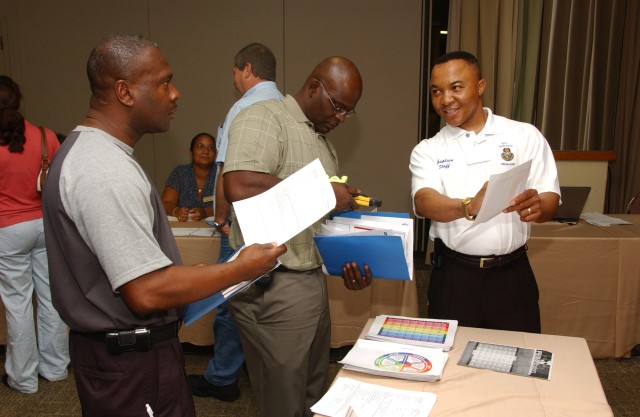
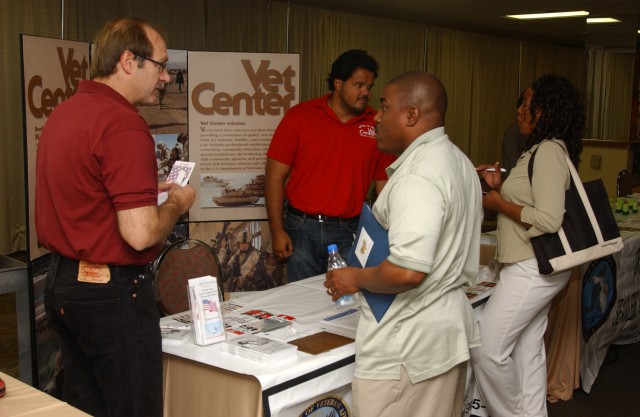
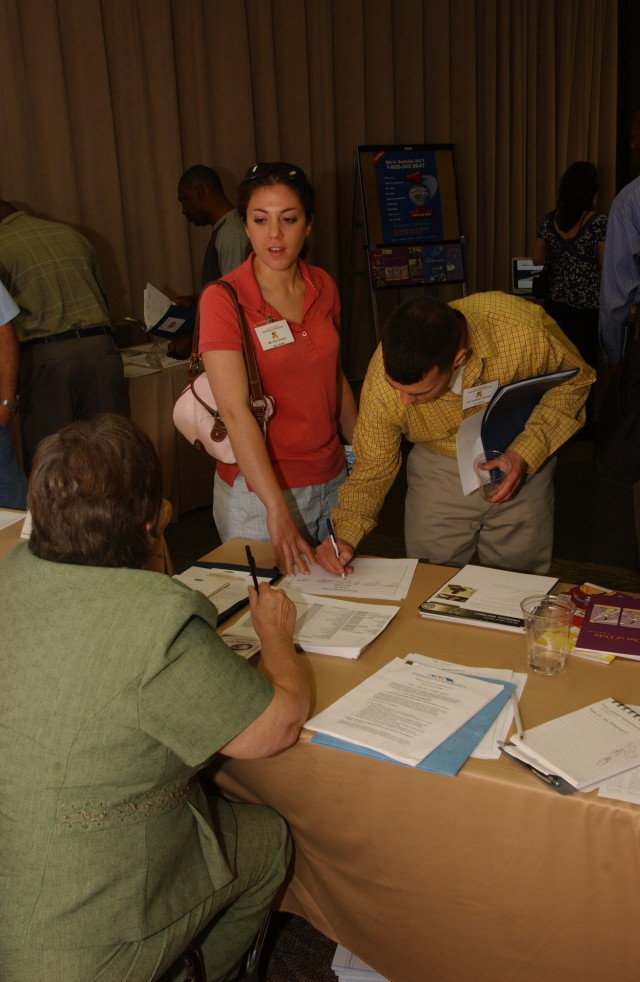
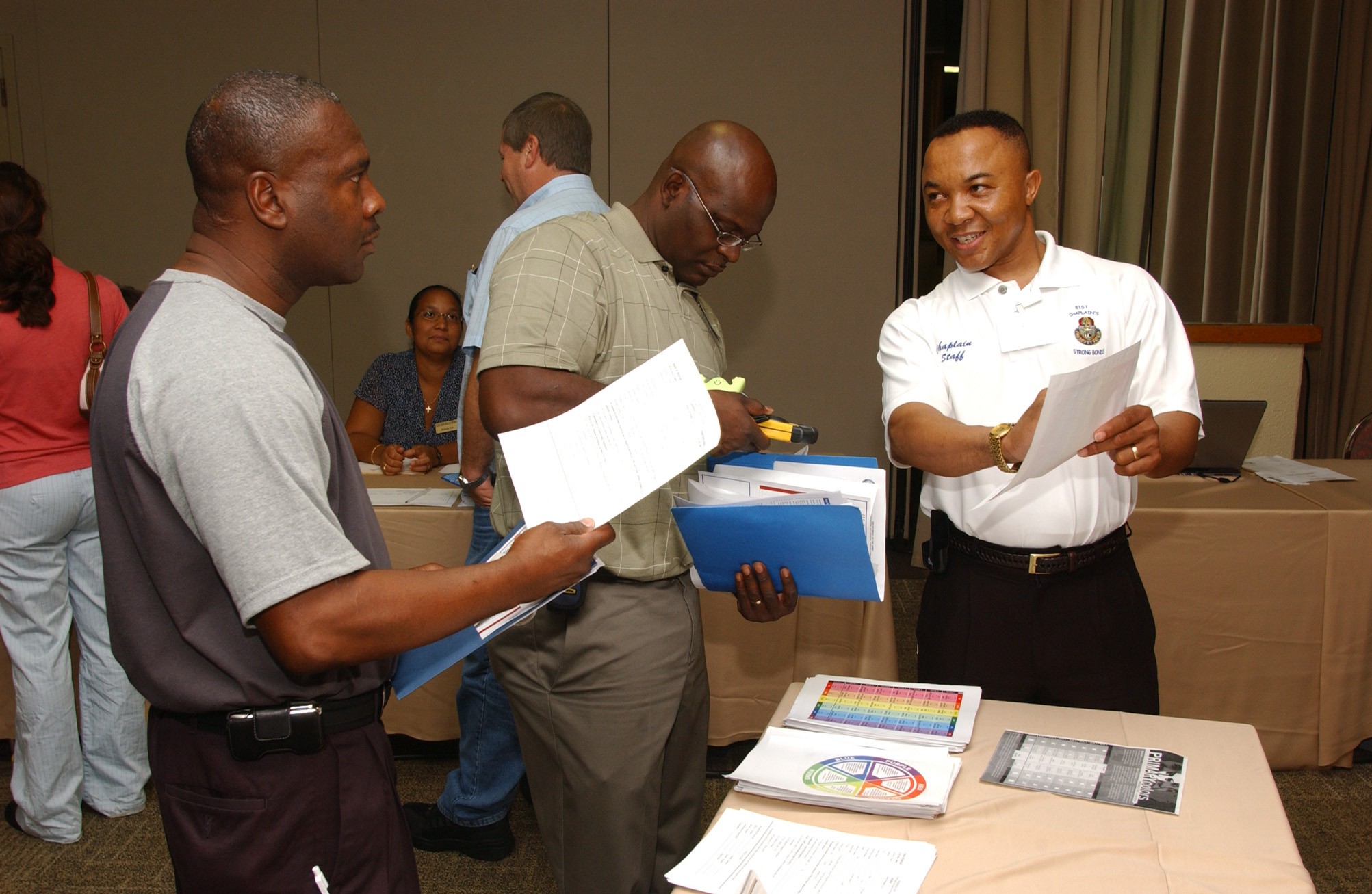
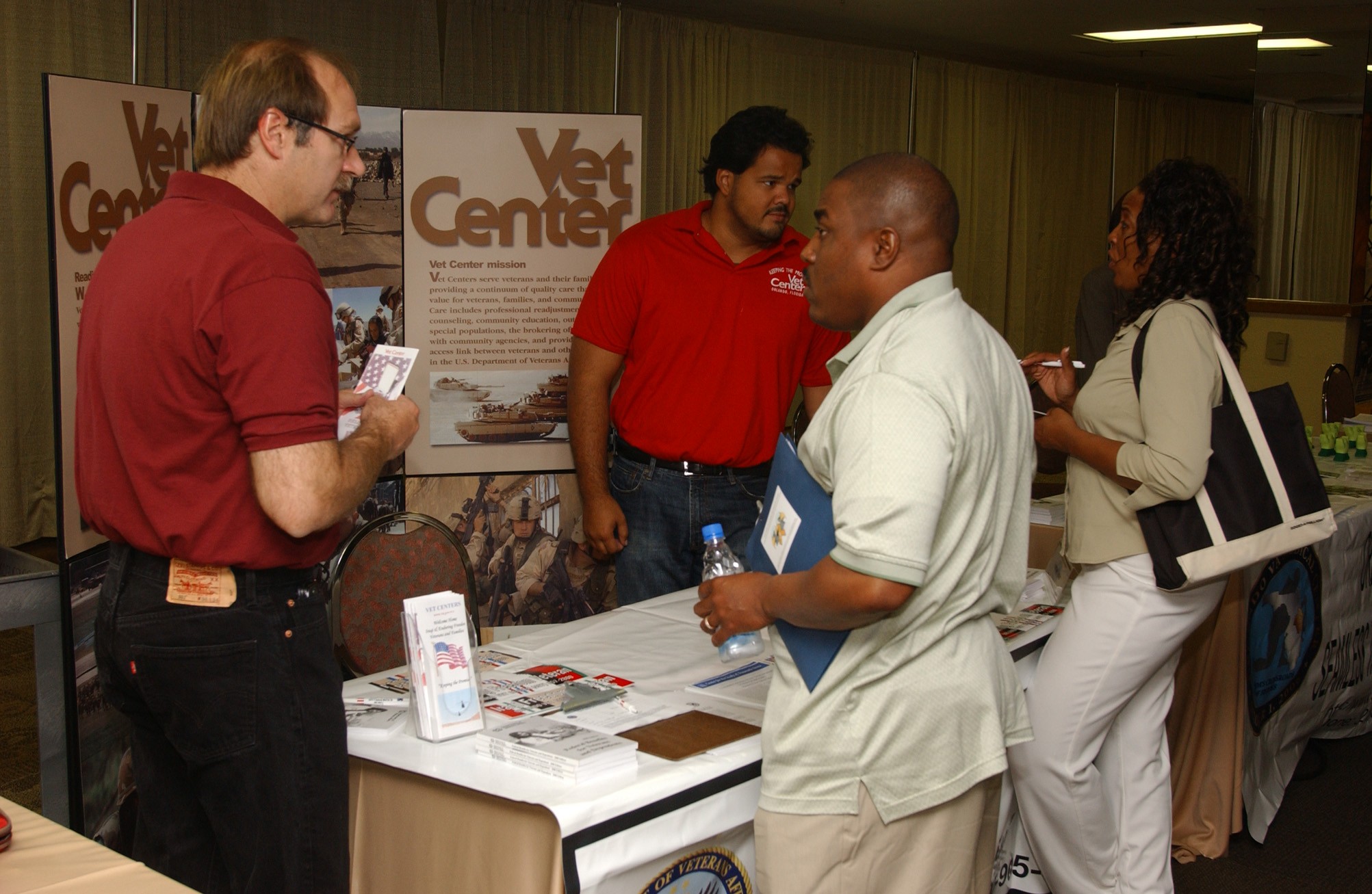
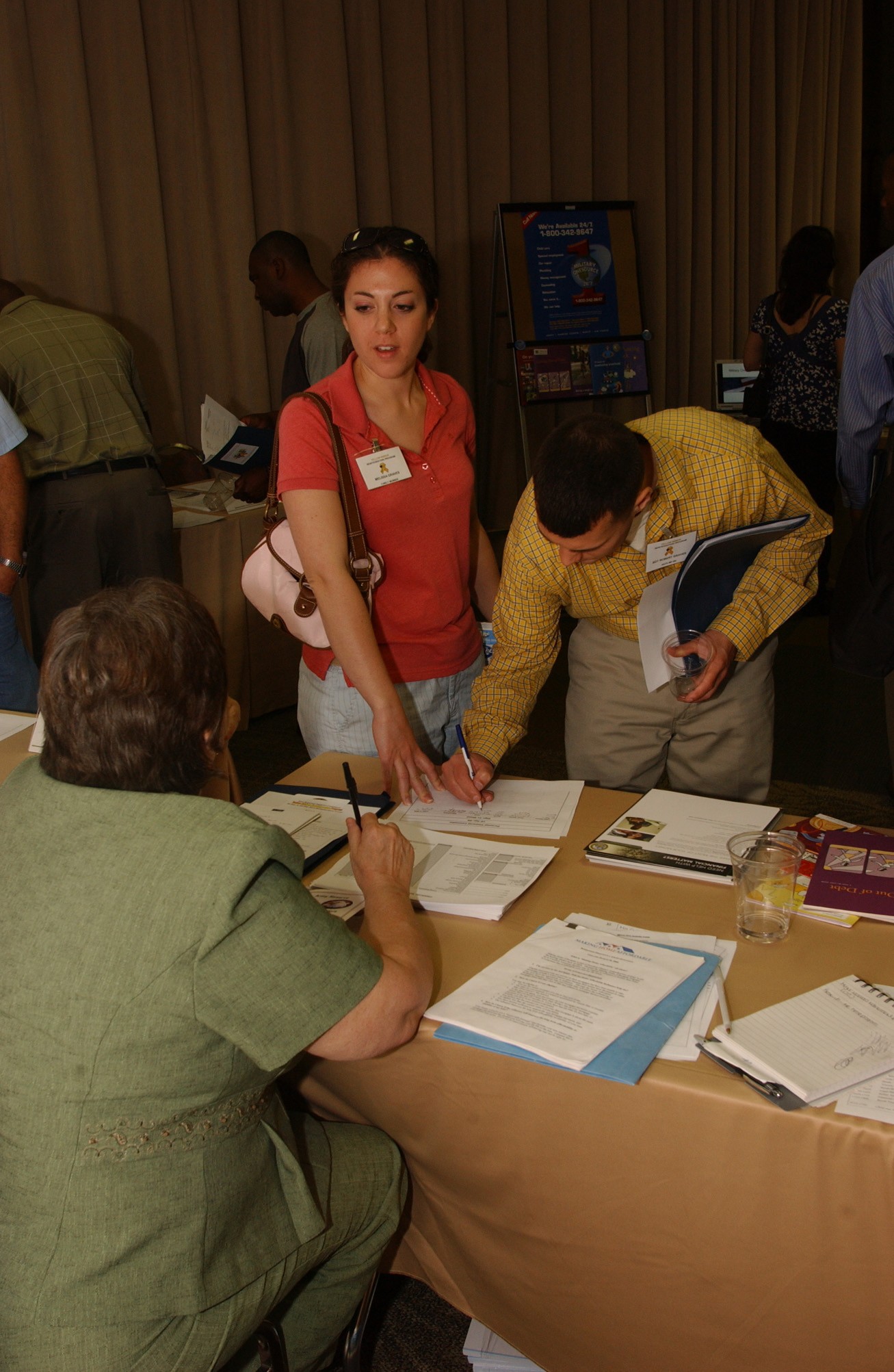
Social Sharing